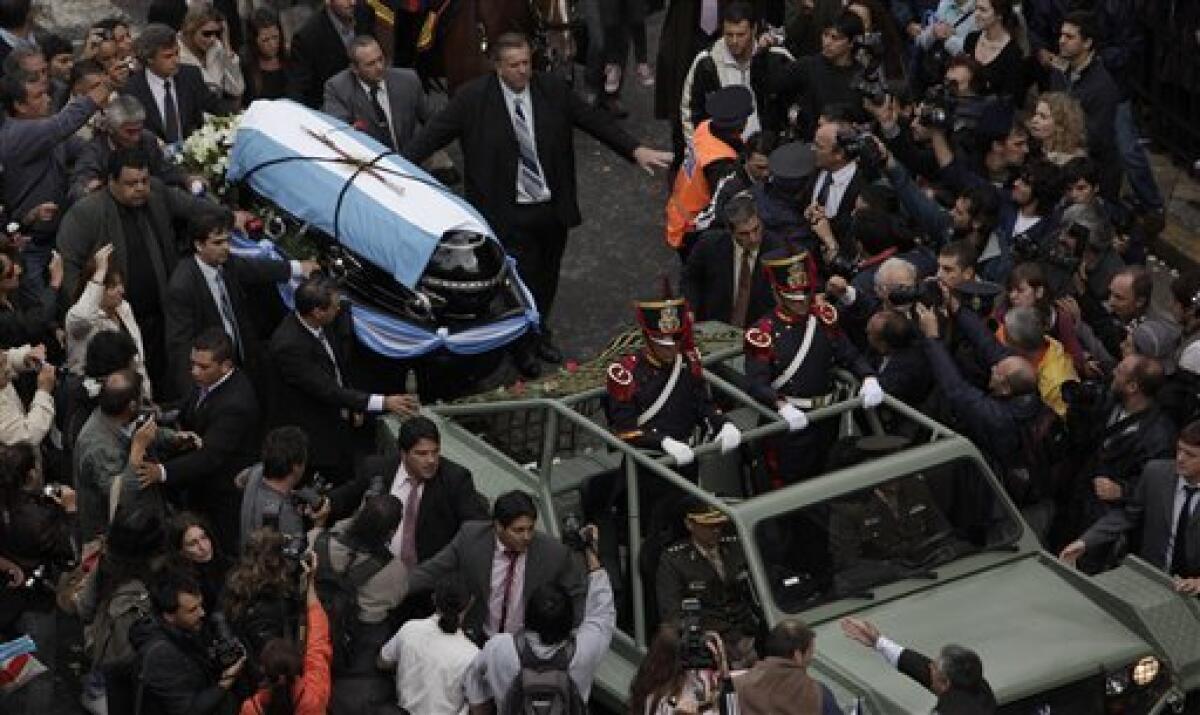Argentina buries Alfonsin, ‘father of democracy’

Raul Alfonsin was buried Thursday after thousands of flag-waving Argentines stood in the rain and tossed flowers onto his coffin, mourning the former president who led their country back to democracy after a repressive military regime.
Alfonsin was laid to rest in the capitol’s famed Recoleta cemetery after an estimated 70,000 people filed past his coffin in Congress. Praised as Argentina’s “father of democracy,” he served as president from 1983-1989, and died Tuesday night of lung cancer at the age of 82.
Alfonsin assumed the presidency during a tenuous time, after a seven-year dictatorship left at least 13,000 killed or disappeared, and the economy in terrible shape.
His daring decision to put top military leaders on trial for human rights violations was lauded worldwide. But he narrowly survived three military uprisings during his tenure and was forced to approve sweeping amnesty laws that protected lower ranking officers. Only now, after the Supreme Court reversed the amnesty, are many of these people being prosecuted for kidnapping, torture and murder.
“Alfonsin’s most important legacy has been the trial of the crimes of state terrorism,” said Horacio Verbitsky, a political analyst and journalist in Buenos Aires. “Later he wasn’t able to live up to the very forces he had unleashed and he ended up passing the amnesty laws.”
Alfonsin acknowledged these shortcomings when Argentina marked the 25th anniversary of civilian rule last year, saying “our democracy is limp and incomplete.”
But he also took some credit for setting Argentina on a democratic path after six coups in the 20th century.
“If we count, surely we will find more de-facto presidents than presidents elected by the people. This is what has notably changed since 1983: there have not been and there will not be any more de-facto presidents.”